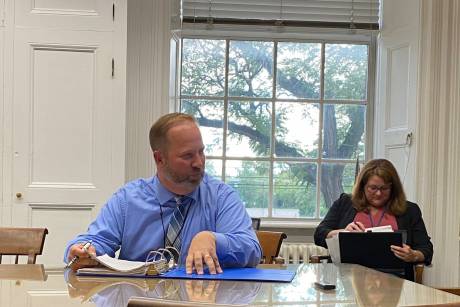
When former Genesee County Attorney Kevin Earl spoke about the county’s lawsuit against some powerful pharmaceutical companies, he said it could be several years before the matter was settled.
That was in 2017. A case about the opioid addiction crisis — so expansive in size and scope that it involved several counties throughout New York State as plaintiffs — against defendants McKesson Corporation, Cardinal Health, Amerisource Bergen, Janssen Pharmaceuticals and Allergan.
The county retained Napoli Shkolnik PLLC to obtain compensation for the money that the county had spent combatting the opioid crisis. Opioids have become such an issue that law firms, including Napoli Shkolnik, specialize in the topic.
The county argued that its social services department had borne the brunt of opioid and addiction-related costs. These professionals must “spend a great deal of time and effort on trying to, first of all, rehabilitate parents because of the drug problem and then terminating parental rights when it becomes necessary,” Earl had said at the time. They alleged that opioid manufacturers deceptively marketed their products and created thousands of addicts in the process.
Earl predicted that the case was going to be “a long process,” and he was right. The case was settled five years later. Genesee County received its first payment late last year, County Manager Matt Landers said. The defendants are paying the state, which in turn is forwarding payments to the counties involved in the lawsuit, he said.
How much has the county received, and what do you intend to do with it? Is the money designated for a specific purpose?
“The county has approximately $370,000 in the bank today,” he said. “A portion of the funding is restricted, and a portion is unrestricted. Genesee County intends to use all of the money towards combatting the effects of opioids in the community and education/prevention measures.”
Landers is part of an opioid task force that meets quarterly. The task force involves county law enforcement, the mental and public health departments, GCASA, Emergency Management and administration.
Updates are provided to the county Legislature, which will be voting on a resolution to contract with a lab to analyze wastewater for various types and volumes of drugs in the system. A portion of the opioid settlement money will be used for that purpose — $1,000 a month for each of two sites. (See related story.)
Public Health Director Paul Pettit said that once the Legislature approves the contract, the lab will begin its work. He expects that to happen by May 1, he said.
The analysis is on a yearly basis, and the contract is for up to three years.
“The hope is to continue on for a number of years to measure the impacts that different initiatives are having in the community,” Landers said.”
File Photo of County Manager Matt Landers by Joanne Beck.
